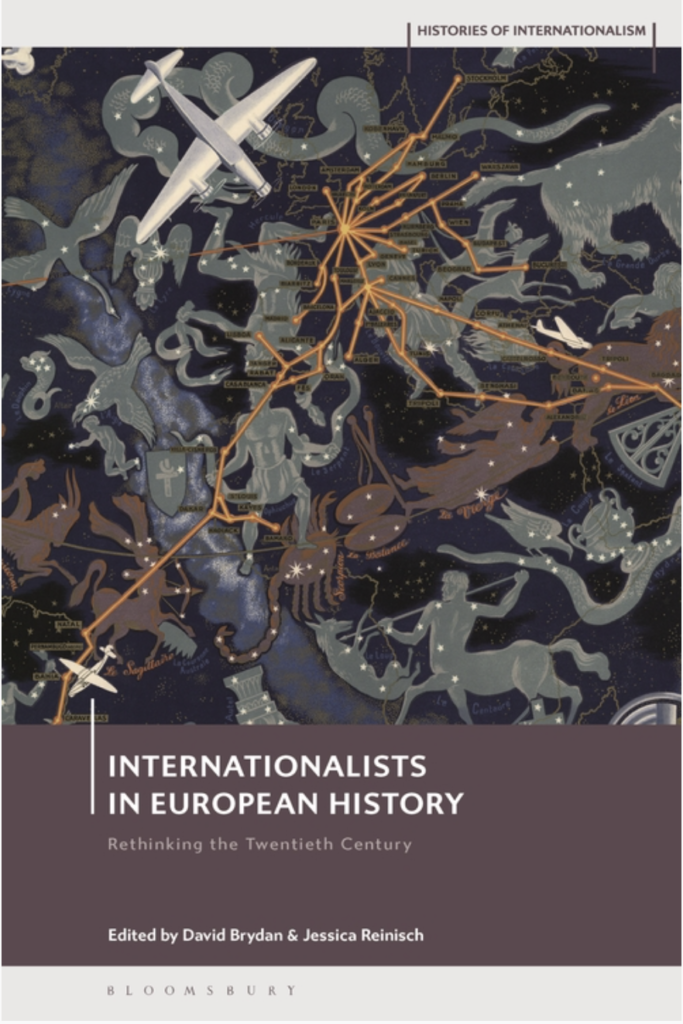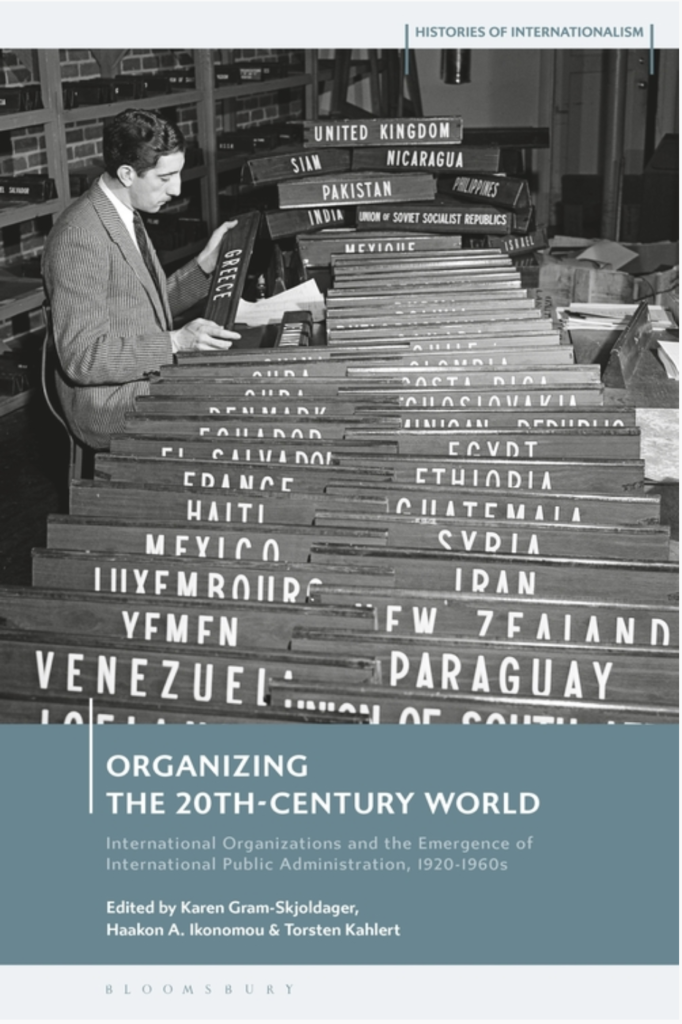On a Friday afternoon just before the Easter break around 50 people joined us on Zoom to mark the launch of a new book series, Bloomsbury Histories of Internationalism, sponsored by the Centre for the Study of Internationalism. The series editors (David Brydan and Jessica Reinisch) were joined by members of the series advisory board, the Bloomsbury commissioning editor for History, Maddie Holder, and colleagues and students working in related fields.
To date, two volumes have been published in the series: Internationalists in European History (edited by us), which looks at the roles played by Europeans in the history of internationalism in the twentieth century; and Organizing the 20th-century world (edited by Karen Gram-Skjoldager and colleagues), which looks at the development of international public administration in the interwar and post-war decades.


One of the main aims and starting points for the series is to find non-normative ways of approaching and understanding internationalism, and deliberately not setting it as our task to find the one and real version of internationalism. Instead, the series will focus on a variety of different protagonists and internationalist projects. Rather than a single model of international cooperation it will foreground a history of overlapping and competing internationalisms. Although key stimuli and agendas were set by Anglo-American actors, we find that the diersity of different internationalisms can only really come into focus when attention was shifted away from the United States and Anglophone world.
At the launch, we asked four members of the series advisory board about their thoughts on the current state of the scholarship around internationalism and opportunities for new research.
Su Lin Lewis, who ran an AHRC-funded research network on Afro-Asian Networks in the Early Cold War period, and is beginning a new research project on Socialist Internationalism and Activist Lineages in the Afro-Asian world, said it was important to move away from the premises of a literature dominated by institutions of the Global North. Instead, she hoped the field would make space for actors, historians and archives from the global South. Recent work on the ‘Bandung moment’, she argued, is an important part of that process, but should also prompt us to consider other networks and actors, particularly those ‘mid-level’ internationalists who fall somewhere between diplomatic and subaltern perspectives.
Stephen Legg has completed a major AHRC project on Conferencing the International: a cultural and historical geography of the origins of internationalism, 1919-1939. Stephen urged researchers to pay more attention to the social and material histories of internationalism, including the development of a startlingly homogenous model of international conferencing which took root across the 20th century and which was used for all kinds of political and non-political ends. He agreed with Su Lin about the importance of the ‘decolonial turn’ in the field, and spoke about making space for Black, Asian and anti-colonial internationalisms without prejudging them as derivative or failed projects.
Heidi Tworek manages the UN History project website and is one of the editors of the Journal of Global History. As such, Heidi is particularly interested in the links and contradictions between international and global history and their different origin stories, but also in the possibilities of merging and combining them. New research on internationalism has the potential to re-think how its history overlapped with that of globalisation and its contribution to shaping the global order. But it also raises new practical and theoretical questions for the field, including how we think about temporalities and the longue durée history of internationalism, and who gets to write these histories from which perspectives.
Alanna O’Malley is chair of United Nations Studies in Peace and Justice at Leiden Universities, and is leading a new ERC-funded project on the history of the United Nations and the Global South. Alanna agreed with the previous discussants that it was important to focus on multiple perspectives and agendas of internationalism, but also raised some of the practical difficulties involved in integrating literatures and sources in multiple languages from different national and regional perspectives. New research should examine the factors that allowed internationalism to become rooted in communities and cultures around the world, not just in the West, as well as the history of non-state and private economic actors who both supported and opposed internationalist projects.
The subsequent discussion probed further into the chronologies of internationalism, including peaks, start and end points. Many of the participants agreed that it was worthwhile to expand work on spaces, actors and themes of internationalism that go far beyond that of the supposed mainstream Western ‘liberal internationalism’. The series has scope for shedding light on how internationalism lives on in different organisations and local and regional archives.
Two books are forthcoming in the series this year: Daniel Stinsky’s International Cooperation in Cold War Europe: The United Nations Economic Commission for Europe, 1947-64, and Stephen Legg and colleagues’ edited collection entitled Placing Internationalism: International Conferences and the Making of the Modern World.
Please get in touch with centreforinternationalism@gmail.com or Maddie.Holder@bloomsbury.com if you are interested in submitting a proposal.